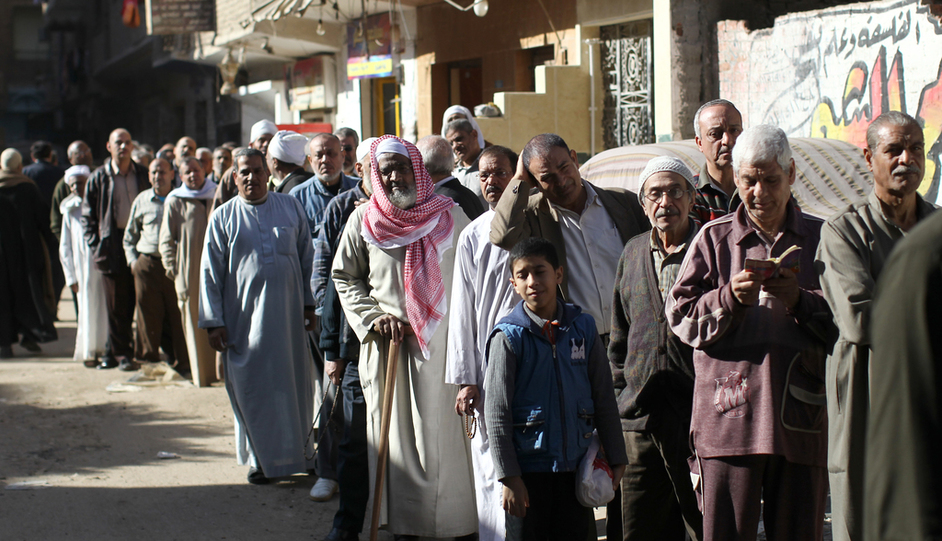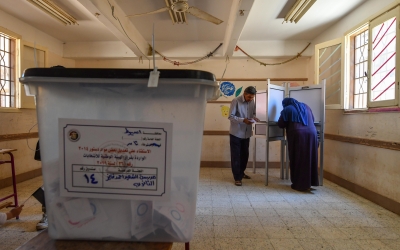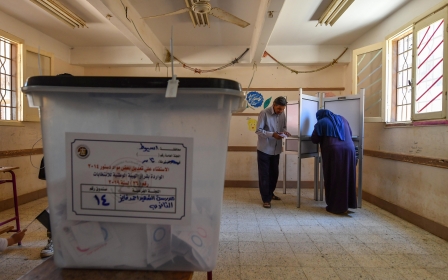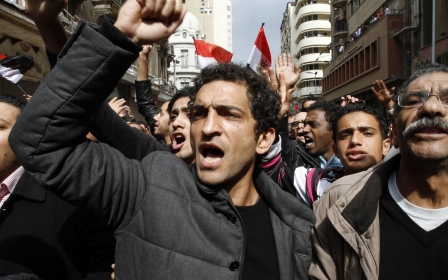'Incomprehensible': Analysts cast doubt on Egypt referendum's high turnout
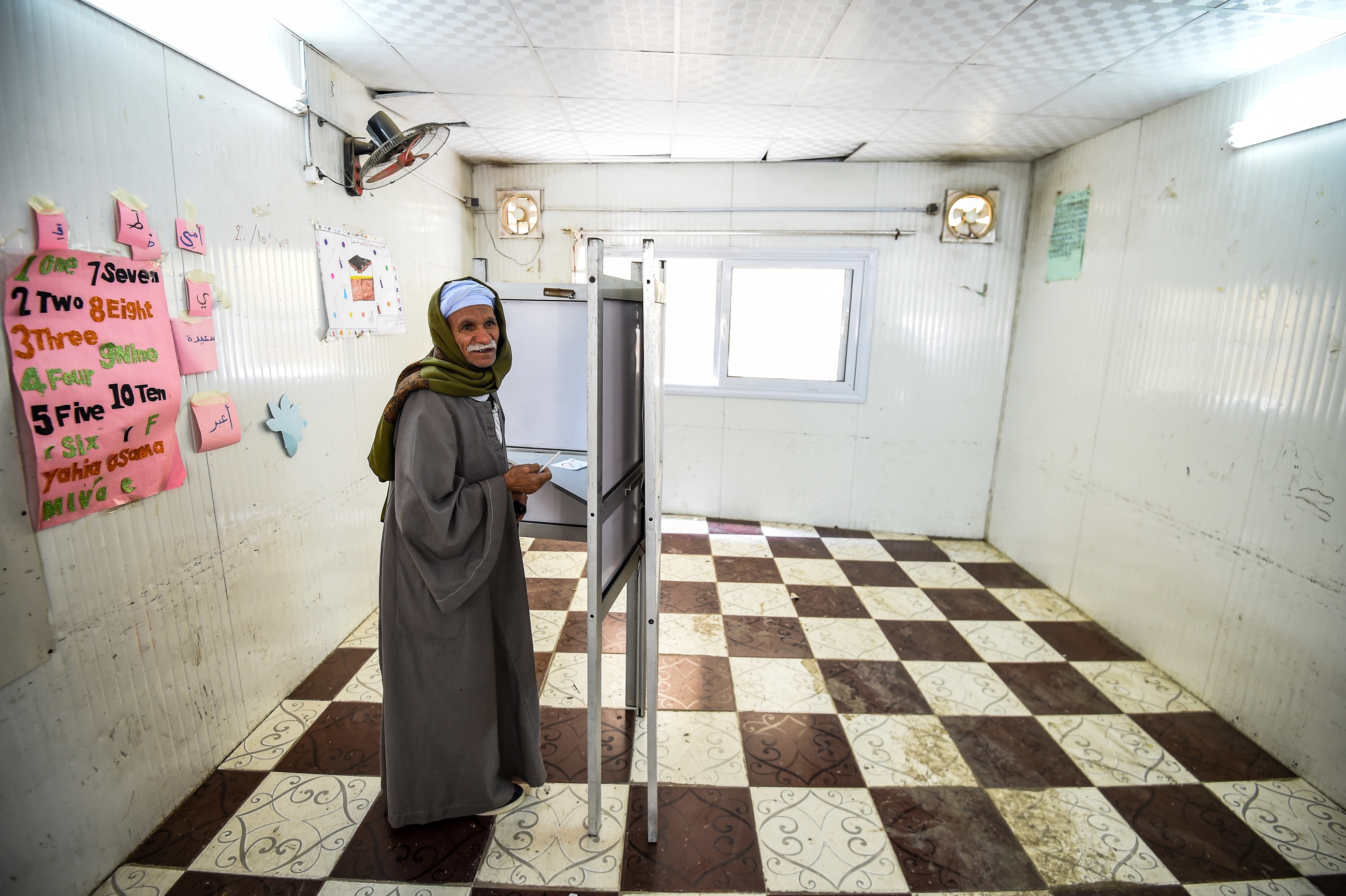
Egypt observers and analysts have expressed serious doubts over the higher-than-normal turnout figures announced by the country’s electoral authority, adding to reports of vote buying and the overall climate of repression that surrounded the vote that ended on Monday.
As the country braces itself for a new period of a state of emergency, announced on Wednesday, observers have noted the discrepancy between anecdotal and photographic evidence and the 44 percent official turnout announced with the results.
According to the National Election Authority, out of 61,344,503 eligible voters, 27,193,593 citizens voted in the referendum, held between 19 and 22 April.
It also stated that 89 percent voted in favour of the amendments, and 11 percent opposed. The "yes" votes amounted to 23,416,000, while the "no" votes stood at nearly 3 million.
'The 44 percent turnout is incomprehensible because this would make this the highest turnout vote in recent history'
- Dalia Fahmy, analyst
The amendments extend Sisi's current term for two more years, and allow him to run for another six-year term in 2024, while also giving him more power over the judiciary and the military a greater role in politics.
New MEE newsletter: Jerusalem Dispatch
Sign up to get the latest insights and analysis on Israel-Palestine, alongside Turkey Unpacked and other MEE newsletters
Sisi is a former defence minister who came to power in 2013 after leading a coup against Mohamed Morsi, Egypt's first freely elected civilian president.
Since his first highly contested electoral win in 2014, Sisi has overseen what independent groups have described as the worst crackdown on human rights in Egypt's modern history, with the detention of at least 60,000 political prisoners and a zero-tolerance policy towards critics.
Many Egypt analysts have expressed scepticism about the recently released voting figures. Commentators noted that the voter turnout was the highest in Egypt’s recent history of referendums, despite the absence of the long queues of voters previously seen under the relatively free constitutional referendums of 2011 and 2012.
The constitutional referendums held in the two years following the 2011 revolution were held with judicial oversight and in the presence of media and international observers.
Photographic evidence, reported in international and local media, showed long queues of voters nationwide. This is in contrast to the scant photographic and anecodtal evidence seen in the 2019 polls. Despite that, the 2011 and 2012 referendums saw 41.9 percent and 32.9 percent turnout, respectively.
“The 44 percent turnout is incomprehensible because this would make this the highest turnout vote in recent history,” said Dalia Fahmy, a political scientist at Long Island University in New York, told Middle East Eye.
“The pictures from polling stations do not reflect this at all.”
“Egypt used to pretend to be a democracy only electorally, today it cannot claim even that,” she added.
Critics of the process have also noted that the referendum came only 72 hours after parliament approved the amendments, depriving Egyptians of a chance to read and understand the changes before voting on them.
Others doubted how authorities could count over 27 million ballots so quickly after the referendum ended.
“If more than 27 million voters turned out at the 10,878 polling stations, then every polling station would have had to process an average of 69 voters for every one of the 36 hours of voting - more than one voter every minute,” Michele Dunne, director of the Middle East Program at the Carnegie Endowment for International Peace in Washington, wrote in an analysis.
“In other words, many stations would have been crowded, with queues of voters at peak hours,” she added.
Dunne explained that the high turnout reported could be an attempt to portray the process as more legitimate than all post-revolution referendums.
Another analyst, Timothy Kaldas of the Washington-based Tahrir Institute for Middle East Policy, described the 44 percent turnout as “absurd”.
In a post on Twitter, Kaldas compared the figure to the 2012 presidential election that witnessed 46 percent turnout, when the voters, according to him, “understood options and believed their votes mattered”.
“In this vote many didn't understand amendments and had no faith their vote would impact result,” he wrote.
Bribes, buses and threats
Although Egyptian authorities denied reports of vote buying, there were widespread reports of bribes and intimidation of voters, to coerce participate in the referendum.
In the days prior to the referendum, shopkeepers, business owners, restaurant proprietors and members of elite families from various parts of the country told MEE that security officials had coerced them into hanging posters backing the amendments – and paying money for the banners on top of this.
'In this vote many didn't understand amendments and had no faith their vote would impact result'
- Timothy Kaldas, analyst
The banners, according to multiple sources, are part of a campaign engineered by Nation's Future, a political party widely believed to be affiliated with Egyptian intelligence and formed in the wake of the 2013 coup. It now wields the second-largest number of seats in parliament.
Meanwhile, in the run-up to the vote, the state blocked more than 34,000 websites in an attempt to restrict an opposition-led campaign to rally Egyptians against the amendments, which activists and rights groups say will only further enshrine military rule in the country.
A MEE correspondent in Cairo said they witnessed dozens of people being bussed to polling stations by authorities and handed bags of food in return for voting for the amendments.
Middle East Eye delivers independent and unrivalled coverage and analysis of the Middle East, North Africa and beyond. To learn more about republishing this content and the associated fees, please fill out this form. More about MEE can be found here.


